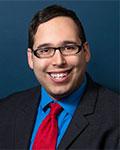
In recent weeks, social media platforms like Facebook, Twitter, and YouTube have banned hate groups and controversial figures such as Louis Farrakhan of the Nation of Islam, Alex Jones of Infowars, and others. This resulted in a chorus of criticism from politicians (across the ideological spectrum), pundits, and the general public. The Trump administration even launched a website to allow users who have been suspended or banned from social media platforms to voice a their complaints about political bias.
But do social media sites have a legal obligation to allow equal access to all viewpoints? Do they violate the First Amendment if they exclude controversial speakers from their platform? Should the government step in to take corrective action? The answer to all these questions is a resounding no.
The First Amendment applies to government actors. It means the government cannot punish you for speech it disapproves of. But social media platforms are private companies. Whether privately run platforms should censor speech is a separate issue ripe for debate. But there should be no debate as to whether the First Amendment bars Facebook, Twitter, or YouTube from restricting speech: No government, no First Amendment claim.
The First Amendment actually protects the right of social media platforms to exclude speakers they disagree with or disapprove of for practically any reason or for no reason at all. After all, the First Amendment guarantees your right NOT to speak or to be forced to associate with speech you disagree with.
In December, the Pacific Legal Foundation filed an amicus brief in a case pending before the Supreme Court about whether the private operator of a public access television network can be required to air content it disagrees with. Hopefully the Supreme Court will reaffirm that private companies are entitled to exclude viewpoints they find objectionable.
Critics of these speech restrictions argue that the platforms can be compared to the modern-day public square, and therefore the companies should be required to let anyone and everyone be heard. But the idea that the government can force a property owner to allow others free access to their property would be absurd in any other context.
Imagine a local church or business hosted a community carnival on their property. Should they be restricted from asking a belligerent drunk or protesters holding signs attacking them to leave the premises? Of course not.
Another common argument is that Facebook, Twitter, and YouTube are monopolies, and the government should either break them up or force them to offer open access to all. But anyone with a cobweb-collecting Myspace, Friendster, or Hi5 account knows the mistake of that argument. Social platforms are constantly rising and falling in prominence. Some are more popular than others, but none control the media market completely.
For example, last year YouTube began to crack down on videos featuring firearms, so gun enthusiasts launched an alternative video platform for gun-related videos called Full30.com. And those who have criticized Twitter and Facebook for anti-Conservative bias have started their own alternative platforms like Parler. That’s how a free market operates.
Others have argued that if Facebook or Twitter are allowed to exclude some offensive or controversial content, then these platforms should be held responsible for any other inappropriate material that does end up on the site. This argument may not violate the First Amendment, but it would break the internet as we know it. Sites like Facebook or Twitter would no longer be able to create a space for the free sharing of ideas without fearing multimillion-dollar defamation lawsuits.
Calling for the government to regulate social media goes against the very concept of the right to free speech. The internet and social media, whatever their flaws, have led to a communications revolution that has made the world freer and more prosperous. Do we really believe Washington can do a better job?
Just as social media companies can exclude content from their platforms, if they engage in politically motivated or arbitrary censorship, anyone is free to criticize them, stop using them, or organize boycotts against them. After all, these companies attracted customers with high-minded promises of creating open platforms for public debate and discussion. When they fall short of their professed values, we can vote with our wallets or with our time.
The government cannot and should not control what people say or where they say it. The First Amendment has enshrined that right in our nation’s guiding legal document. We violate that ideal when we try to force the government to intervene when private people or companies say or do things we disagree with.
Attorney Daniel M. Ortner joined Pacific Legal Foundation in the fall of 2018, focusing on the First Amendment, property rights, economic liberty, and curtailing the overreach of the administrative state. He graduated Summa Cum Laude and first in his class from the J. Reuben Clark Law School at Brigham Young University.


